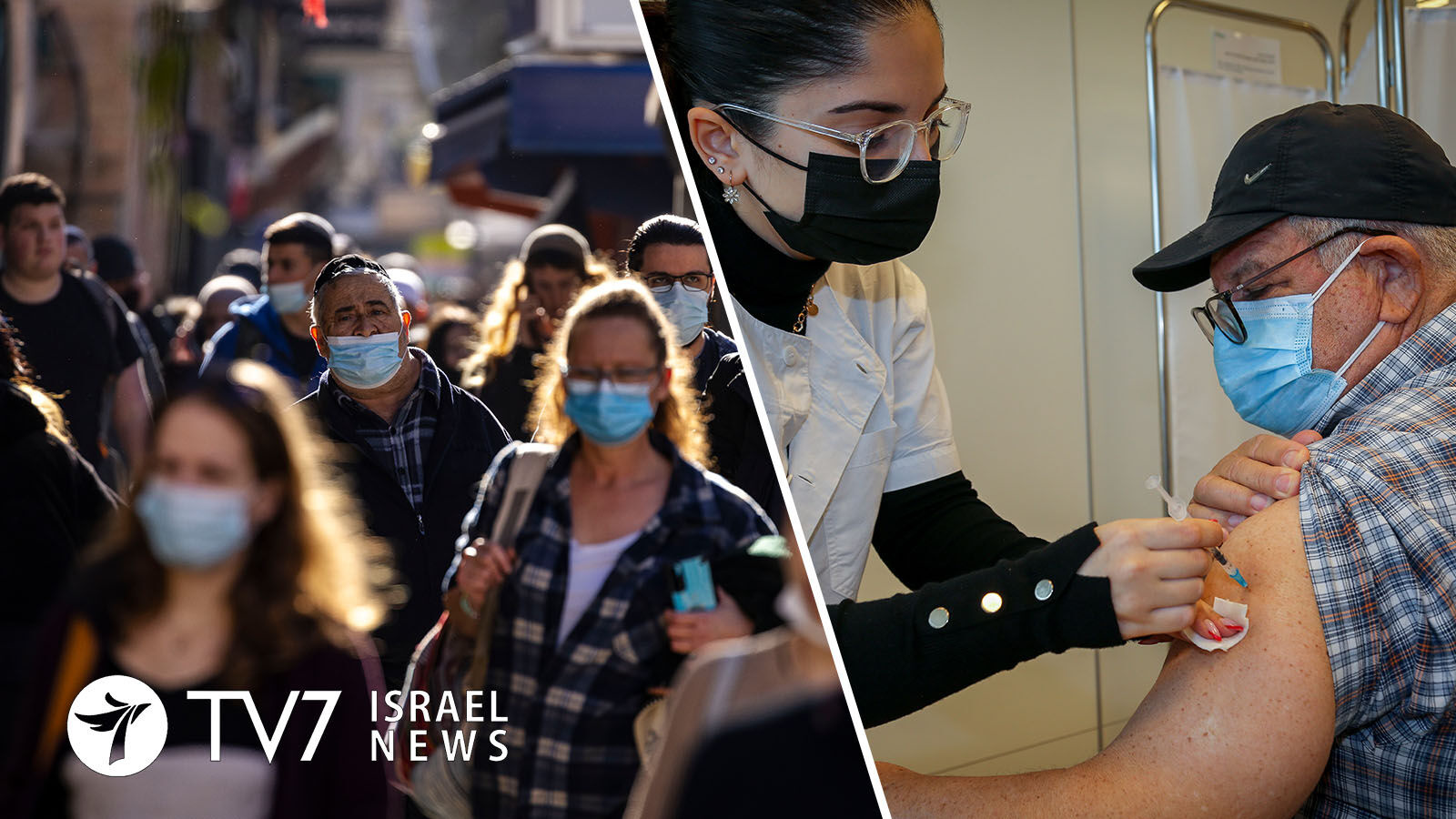“The wave has broken,” Prime Minister Naftali Bennett said at the start of a discussion with health officials on the state of the pandemic, where it was announced that the country’s Green Pass system is being shelved.
By Erin Viner
The “Green Pass” program was set up to provide entrance to some restricted public venues based on proof of vaccination, recovery from COVID-19 or negative tests.
The further rolling back of Israel’s limitations on movement comes amid the receding of a wave of coronavirus infections.
Ministry of Health data shows that the highly-contagious Omicron variant peaked toward the end of January, when daily cases reached record highs of some 85,000. Numbers of patients have since steadily declined to around 21,000 cases this week.
Prime Minister Naftali Bennett announced the decision not to extend the Green Pass plan following a discussion with health experts yesterday due to the decline in the number of severely ill Israelis.
Participating in the discussion were the Health Minister, the Health Ministry Director General, the Deputy Director of the National Security Council, the national coronavirus project manager, the Director of the Public Health Service, GOC Home Front Command, the Finance Ministry Budget Director, the Finance Ministry Accountant General, the Deputy Attorney General and other senior officials.
“We were the first country to close its gates in the Omicron wave; therefore, this is also the time for a gradual relaxation. As far as I am concerned, we must prepare to relax the restrictions soon,” said Prime Minister Bennett, according to a government statement obtained by TV7.
Pointing to recent rosy financial forecasts, he said that his government’s strategy “of an open economy alongside a struggle and many actions against the coronavirus, has led to the State of Israel being first in growth among the developed countries and to a level of economic growth that we have not seen in 21 years,” underscoring that, “Israel is the fastest growing country thanks to the health system and the team here that has been working around the clock. We are talking about 8% growth, the highest among OECD member states. In the last quarter there was 16% growth.”
The key to Israel’s success, he said, was the striking the right balance between “an open economy and an open educational system, without reaching supply failures.”
The Israeli leader nevertheless warned that, “At the same time, we will also prepare for the next wave. I want us to learn the lessons where necessary from managing this wave so we will be better prepared for future scenarios.”
An additional discussion on further measures to ease restrictions will be held soon.
The Green Pass rules were already cut back on 4 February, requiring it be provided only for entrance int mass areas such as nightclubs and celebration halls.
Israel has been trying to adopt a “Living with COVID” policy to keep businesses and schools largely open, although some sectors still struggled as employees, customers, students or faculty fell ill or were in quarantine.
Bennett said parents would still be obliged to test their children for the virus twice a week with antigen tests, which will also continue to be required to entire care homes for the elderly.
Omicron has caused proportionally fewer severe infections and deaths than previous variants of COVID-19, but the sheer magnitude of the surge placed significant strain on Israel’s healthcare system.
Israel, with an overall population of 9.4 million, has registered 3.5 million coronavirus cases since the start of the pandemic, up to 50% of which were caused Omicron.
